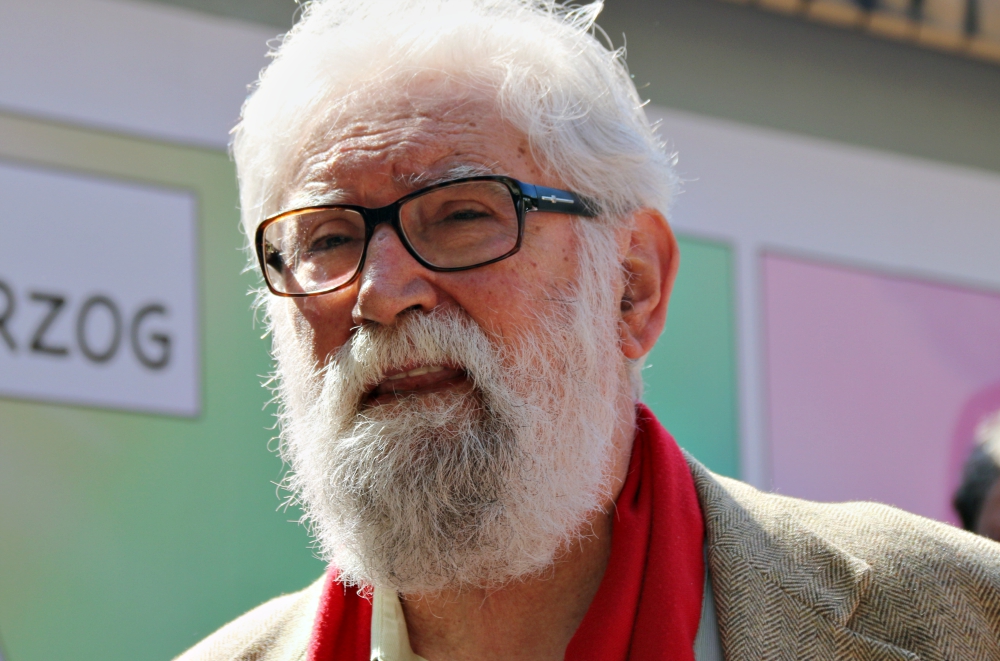
Leonardo Boff in 2017 (Wikimedia Commons/OBORÉ/Cadu Bazilevski)
I cannot help wondering if the current implosion of ecclesiastical credibility over clergy sex abuse has the potential to create a new moment of grace, one that breaks down outmoded governance models and creates new ones better suited for our times.
We may already have a road map — thanks to liberation theologian Leonardo Boff.
While completing my master's studies in theology in 1992, I was smitten by Boff's prophetic book Church: Charism and Power. At the time that the book was published in 1981, Boff was a Franciscan priest and theologian based in Brazil. There, he experienced the gifts of the Spirit (charisms) at work in the vibrant base Christian communities of Latin America. His book emerged from a milieu wherein poor campesinos found courage and grace to love one another while confronting systemic injustices that kept them poor.
For Boff, the church is the sacrament of the Holy Spirit, and since the Spirit is given to all of the people of God, one could ask what organizational or jurisdictional structures function best for releasing the Spirit's gifts on behalf of the reign of God?
After extensive study of more Eurocentric theological traditions, Boff dared to suggest a new model of church governance. In his model, charism (Spirit-gift) is the organizing principle, rather than the monarchical structures we now have. He points to St. Paul, who saw charism as a concrete function or service that each Christian exercised on behalf of everyone in the community (1 Corinthians 12:7; Romans 12:4; Ephesians 4:7).
For Paul, there are no non-charismatic Christians, everyone has an important place, and each of us is called to serve the community (Romans 12:5). Boff observes, "This model of Christian life is very different from the one in which the hierarchy takes all sacred power and all the means of religious production, saying in effect, 'You will listen obey, ask no questions, and do as we say.' "
In Boff's model, the hierarchy is just one charismatic state in the church, and it must not suffocate the other charisms raised up by the Spirit. Further, the function of hierarchy is to "make way for unity and harmony among the various services" (charisms) exercised by the faithful.
It is not a leap to say that in this model, leaders (priests, deacons and bishops) would be selected based on who has the gifts for the office, not on the basis of gender or power.
Predictably, in 1984 Boff was put on trial by the Vatican's Congregation for the Doctrine of the Faith and sentenced to a year of "obsequious silence" by then-Cardinal Joseph Ratzinger. Boff would leave the priesthood in 1992, after Ratzinger tried to silence him again. Boff's book was said to "endanger the sound doctrine of the faith."
Yet as anyone who has read it can attest, the only thing Church: Charism and Power endangered was the nonaccountable monarchical structures from which we suffer grievously today.
It is painfully clear that rampant clericalism in a closed "good ol' boys" network allowed both horrendous sexual abuse and an egregious cover-up by bishops. These same bishops chose to preserve the clerical system rather than protect our children.
What are we to do?
Suggestions abound including: establishing a new National Review Board in hopes of holding bishops accountable, monitoring diocesan lay review boards, sponsoring cathedral protests, and even appointing women as cardinals. These could be helpful in the short term. But they also risk perpetuating the monarchical-clerical system when what is needed is a radical overhaul.
Advertisement
Here is my take on what a "radical overhaul" might involve:
Why not convene a worldwide synod on the Holy Spirit in Catholic life and leadership, at which representation from all of the people of God would have deliberative voice alongside the bishops? One agenda item could be discussion/discernment of new mechanisms for integrating the Spirit-gifts of the people of God into church ministry and decision-making. Another could be an exploration of linking church governance to the sacrament of baptism rather than to ordination.
Surely, through the power of the Spirit, such dialogue and discussion could help us discover the checks and balances so desperately needed in modern Catholic governance.
Preparing for such a synod would require expertise from prominent ecclesiologists and canon lawyers. These experts could recommend changes in canon law and in church policy that will hold bishops accountable and integrate laity into decision-making so that we have deliberative voice (not just consultative) at every level.
Yes, it all sounds pretty much pie-in-the-sky. But I believe in miracles. Against all odds, we sisters in the U.S. survived the apostolic visitation and the doctrinal assessment. We survived because of the power of the Spirit at work in us — as well as in the bishops Rome had appointed to investigate us.
I just finished reading However Long the Night — a beautiful little book from the Leadership Conference of Women Religious. In a series of brief essays, the sister-leaders describe contemplative decision-making processes that made room for the Spirit of God to lead and guide them through a painful conflict with the Vatican. It exemplifies many of Boff's writings about the central place of charism in the life of the church.
The Spirit knows what s/he is about. As perhaps never before, it is time for us to act, and to trust her.
[St. Joseph Sr. Christine Schenk served urban families for 18 years as a nurse midwife before co-founding FutureChurch, where she served for 23 years. She holds master's degrees in nursing and theology.]
Editor's note: We can send you an email alert every time Christine Schenk's column, Simply Spirit, is posted. Go to this page and follow directions: Email alert sign-up.








